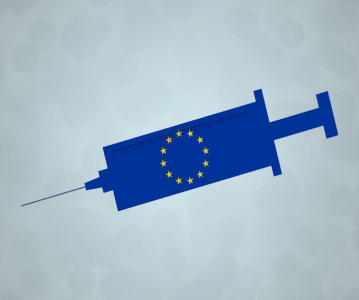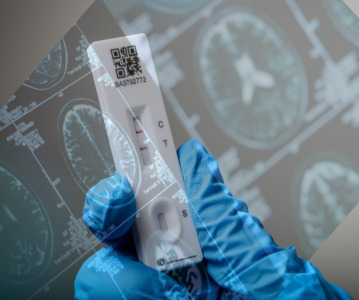Despite its weak pipeline, schizophrenia market may benefit from drugs used in similar indications

A new report from business intelligence provider GBI Research — Frontier Pharma: Schizophrenia and Associated Indications — states that although the schizophrenia market is replete with unmet needs and its pipeline is paltry, the overall level of innovation for schizophrenia-related indications — which comprise depression, panic disorders, obsessive compulsive disorder, post-traumatic stress disorder and cognitive deficit — is far higher, and has the potential to provide some benefit to patients with schizophrenia.
The large population of schizophrenia patients in relation to its small pipeline of 134 products is indicative of a low level of investment in Research and Development (R&D), most likely due to a poor understanding of the underlying disease mechanisms. This acts as a strong barrier to the development of effective pharmaceutical products.
Managing Analyst Dominic Trewartha explains: "While current treatments offer some relief from symptoms such as hallucinations, they have not proven as effective for cognitive dysfunction and symptoms such as the inability to feel pleasure, and there are no disease-modifying drugs currently available. A number of combinations, such as the addition of adjuvant agents to antipsychotic medication, have been trialed, but they have had little impact."
GBI Research states that there are 360 products in the pipeline for conditions associated with schizophrenia, 60 of which are first-in-class, equating to 21% of products with a disclosed molecular target. Overall, while the proportion of first-in-class products is still low, there are more in the pipeline for schizophrenia-related indications, particularly depressions and cognitive deficit, than there are for schizophrenia itself, and these act across a far wider range of molecular targets.
Trewartha continues: "The range of innovation is relatively diverse in the pipelines for schizophrenia and related indications, with products acting on numerous novel molecular targets, including D-Amino Acid Oxidase, glutamate carboxypeptidase 2, and a number of probable G protein-coupled receptors.
"It is likely that small molecules will remain clinically and commercially the most successful molecule types across many therapy areas and indications, being particularly relevant in the central nervous system (CNS) and schizophrenia, with only limited prospects that new product approvals could change the landscape.
"Despite industry-wide trends towards a diversification in therapeutic molecule types, it is unlikely that this will be translated in CNS disorders and schizophrenia, due to the challenges of crossing the blood-brain barrier with larger and more complex molecular types."
Related News
-
News Patients vs Pharma – who will the Inflation Reduction Act affect the most?
The Inflation Reduction Act brought in by the Biden administration in 2022 aims to give better and more equitable access to healthcare in the USA. However, pharma companies are now concerned about the other potential costs of such legislation. -
News CPHI Podcast Series: What does the changing US Pharma market mean for industry and patients alike?
In this week's episode of the CPHI Podcast Series Lucy Chard, Digital Editor for CPHI Online is joined by James Manser to discuss the political and market changes in the US pharma field. -
News CPHI Barcelona Annual Report illuminates industry trends for 2024
The CPHI Annual Survey comes into it’s 7th year to report on the predicted trends for 2024. Over 250 pharma executives were asked 35 questions, with their answers informing the industry landscape for the next year, spanning all major pharma marke... -
News Which 10 drugs are open to price negotiation with Medicare in the USA?
The Centres for Medicare & Medicaid Services, under the Biden administration in the USA, has released a list of the 10 drugs that will be open to price negotiations as part of the new legislation under the Inflation Reduction Act (IRA). -
News EU Medical Devices Regulation causes unintended disappearances of medical devices for children, doctors state
Doctor groups and associations have appealed to the EU to correct the EU Medical Devices Regulation law that may cause unintended shortages of essential drug and medical devices for children and rare disease patients. -
News 10 Major Drug Approvals So Far in 2023
Last year, 37 novel drugs were approved by the FDA, this was a high number for such a category, and covered many fields including oncology, demonstrating how promising further research is, and how it is only continuing to build. To date, there are alre... -
News Detecting Alzheimer's disease with a simple lateral flow test
A novel rapid diagnostic test for early-stage Alzheimer's disease has been developed using a biomarker binder from Aptamer Group along with technology from Neuro-Bio, the neurodegenerative disease experts. -
News CPHI Podcast Series: outsourcing and manufacturing trends
Listen to the CPHI Podcast Series this June to hear Gil Roth of the PBOA speak with Digital Editor Lucy Chard about the biggest trends and topics to watch in pharma outsourcing and manufacturing at the minute.
Position your company at the heart of the global Pharma industry with a CPHI Online membership
-
Your products and solutions visible to thousands of visitors within the largest Pharma marketplace
-
Generate high-quality, engaged leads for your business, all year round
-
Promote your business as the industry’s thought-leader by hosting your reports, brochures and videos within your profile
-
Your company’s profile boosted at all participating CPHI events
-
An easy-to-use platform with a detailed dashboard showing your leads and performance







